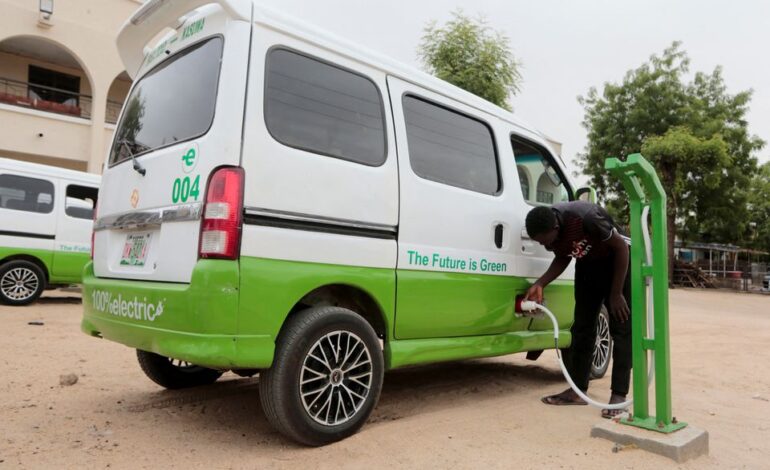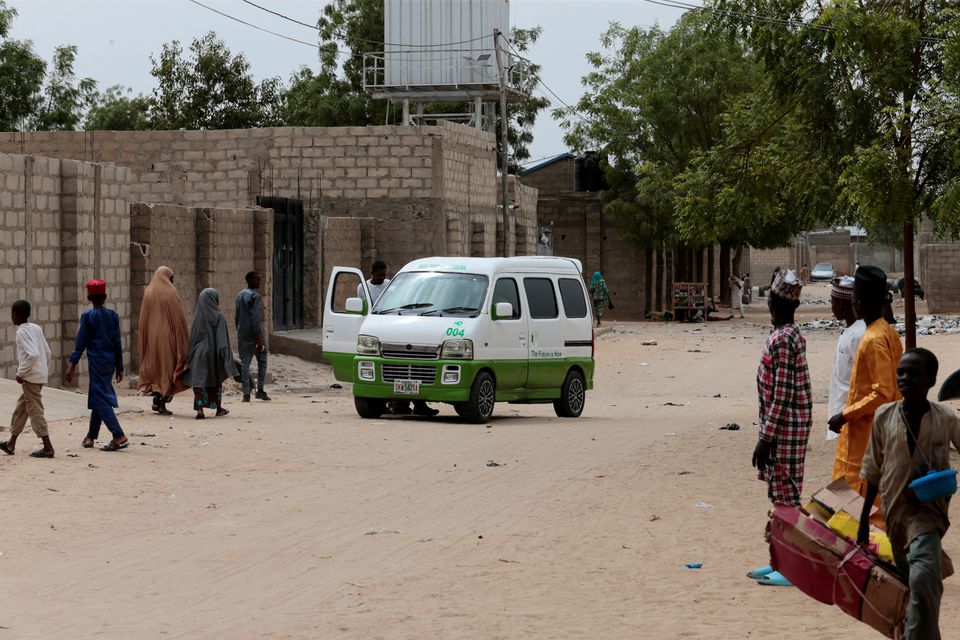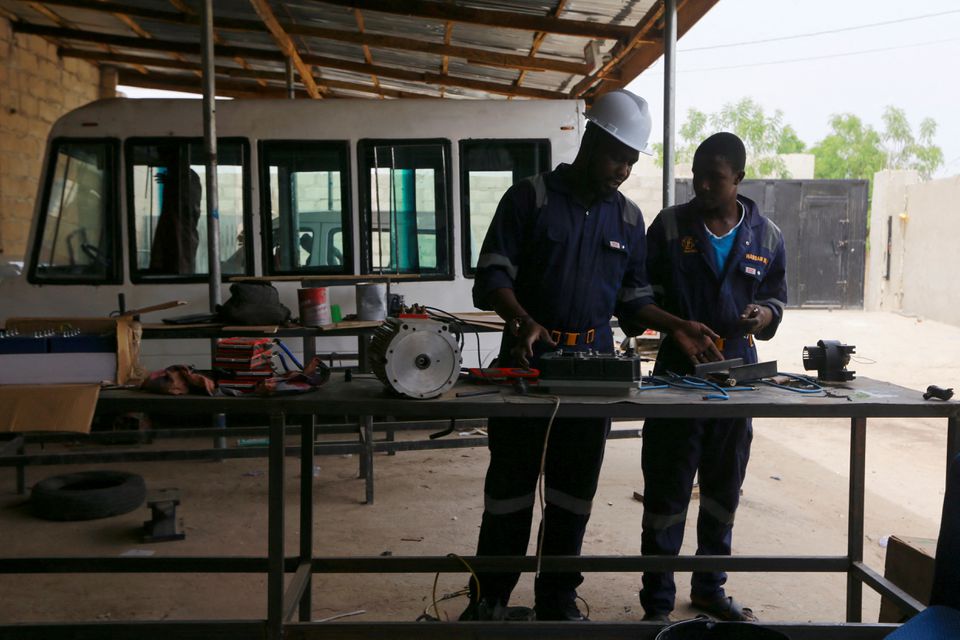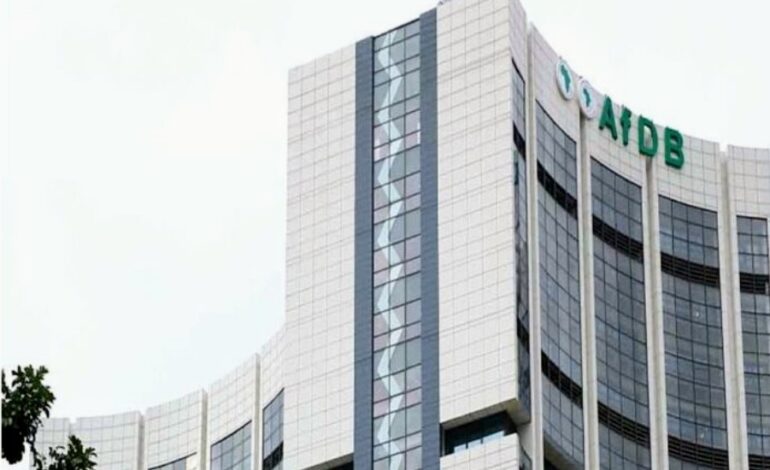
Ekeomah Atuonwu
Mustapha Gajibo, a Nigerian entrepreneur, has been converting petrol minibuses to electric vehicles at his workshop, but he is now taking it a step further by designing and building solar battery-powered buses from the ground up in an effort to promote sustainable energy and reduce pollution.
Africa’s largest crude oil producer and exporter has substantially subsidized gasoline and sporadic energy supplies, a combination that could deter anyone from investing in electric vehicles.
Gajibo, a 30-year-old university dropout from Nigeria’s northeastern city of Maiduguri, is unfazed. Electric vehicles, he claims, are a viable alternative in Nigeria due to rising global oil prices and pollution.

He has already pulled the combustion engines off ten minibuses at his workshop and replaced them with solar batteries. He claims that the buses, which have been in service for just over a month, can travel 100 kilometers on a single charge.
His most ambitious idea is to construct the buses from the ground up. They will have solar panels and batteries installed.
“As I am speaking to you now at our workshop, we are building a 12-seater bus which can cover up to 200 kilometres on one charge,” Gajibo said.
“Before the end of this month we are going to unveil that bus, which will be the first of its kind in the whole of Nigeria,” he said, adding that his workshop had capacity to produce 15 buses a month.

Electric vehicles are not popular in Nigeria, as in the rest of Africa, because they are more expensive and there is a lack of electricity and charging infrastructure.
Gajibo currently has one solar-powered charging station.
Other obstacles, such as foreign currency shortages, make importing parts problematic. As a result, he’s seeking for them in Nigeria.




